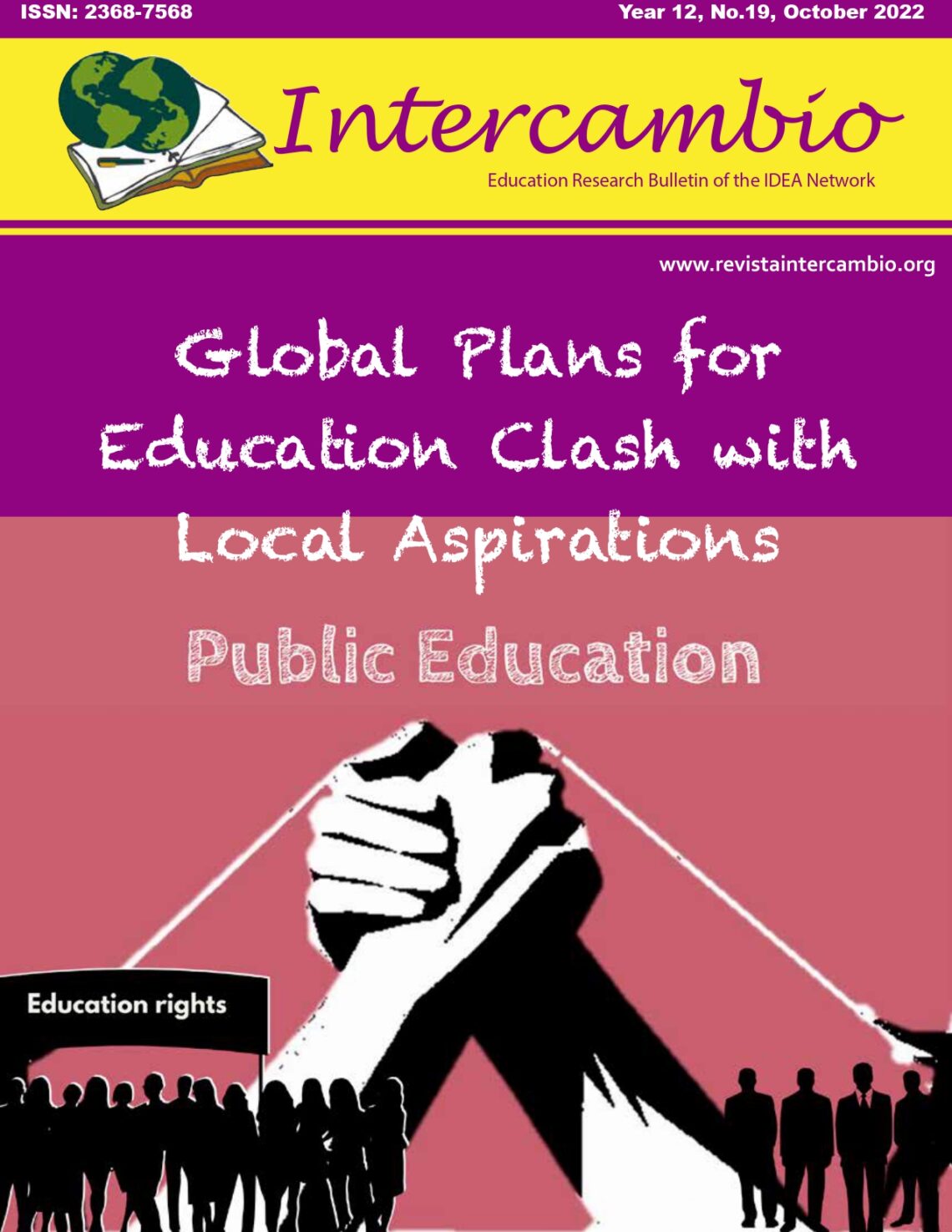
Intercambio 19
Global Plans for Education Clash with Local Aspirations
Year 12, No.19, October 2022
In mid-2019, the Organization for Economic and Co-operative Development (OECD) unveiled its “learning compass.” Described as a “framework that aims to help students navigate towards future well-being,” the Learning Compass outlined the OECD’s goals for global education over the next decade. The compass was unveiled amid colonial tropes of discovery and conquest but couched in perfunctory references to adapting global priorities to the “local context.” It was also introduced on the eve of the COVID pandemic, offering an enticing promise of a charted path to well-being. Indeed, the OECD is now finalizing a “teaching compass,” extending the reach of its program from curriculum (or what is taught) to pedagogy (or how teaching happens).
However, this vision for education is haunted by many questions. What values are erased when education is rationalized by the demands of global knowledge economies? Whose interests are served by the de-professionalization of the teaching profession, and how are teachers fighting for alternative futures for public education? What knowledges and pedagogical practices can speak back to imperialist cultural assumptions and expectations?
This issue of Intercambio seeks to de-center the global future of education, as articulated by international organizations such as the OECD, by exploring these questions. The issue is organized into two complementary lines of analysis: 1) the interface between a global vision for the future of public education and the realities being lived by teachers and students; and 2) alternative imaginaries for public education that are rooted in local knowledges and ways of being.
Download




